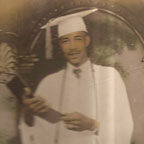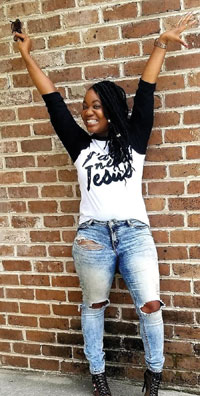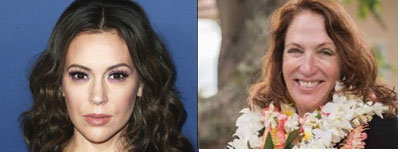
 Fort Lauderdale’s Native Son Earl Thomas shares his life story
Fort Lauderdale’s Native Son Earl Thomas shares his life story
Over the course of 79 years, Fort Lauderdale native Earl Thomas has served his family, his community, and his country.
By Charles Moseley
Things have changed considerably here in Fort Lauderdale since Earl Thomas was born back in 1936. Gone are the days when Blacks in Fort Lauderdale were confined to living in the Northwest section between the railroad tracks on the east and west and between Broward Boulevard to the South and Sunrise Boulevard to the North.
So called “Colored Schools” designed strictly for Blacks are no longer only open for half- a-day schedules which operated only six months a year; as compared to their white counter-parts who attended school nine months out of the year, complete with full day schedules.
Thomas vividly recalled the days of the “Jim Crow South” which existed during his youth and into adulthood, when Blacks were barred from equal access to public accommodations and denied many of the same opportunities as white Americans.
Aside from the obvious changes brought about in race relations, Thomas can bear witness to major changes which have taken place locally, nationally, and on an international level throughout his life-time.
Not only has Thomas seen the transformation of the City of Fort Lauderdale whose residents, both Black and white, once relied primarily on the agricultural industry to make a living; he’s also lived to see this city become a progressive modern day metropolis, attracting international trade from a-cross the globe.
Most notably, Thomas has lived to see what many in his generation and beyond imagined to be impossible; that being the highly unlikely election of the nation’s first African American President, Barack Obama.
Thomas delivered into this world at home located at 507 N.W. Third Ave. Just like most Colored babies in those days, a mid-wife performed the delivery.
Thomas honestly admitted being unable to recall the name of his mid-wife. However that was one of only a few things that the 79-year-old failed to recall, during a recent interview with the Westside Gazette.
“I was raised by my mother’s mother, Ida Patterson. Back then there was no hospital for Blacks when I was born. Provident Hospital was not built until later on when I was in school.”
Much like most Black families during the early and middle part of the 20th century throughout the South, the Thomas family relied heavily on each other in which every family member was expected to contribute their share from an early age.
The young Thomas was no exception and he began working at a local grocery store from a very early age during his primary school days at Dillard Elementary. It was not uncommon for Black children to spend part of the day attending school and part of the day doing farm work or some type of manual labor.
“My first job was working at Margaret Ann Grocery Store located Northwest Second Street and Third Avenue. Back then I picked potatoes and bagged potatoes. A 10 pound bag of potatoes cost 19 cents.”
He also recalled the clearly drawn lines which separated the races during his early years and into adulthood.
“I rarely had a problem. I knew on the other side of the railroad tracks on Second Avenue, we called it The Saw Mill Quarters, once you crossed that track, you (Blacks) had to have a reason for being in that part of town.”
Thomas attended Dillard Elementary all the way through to graduating from Dillard Comprehensive High School in 1956. He distinguished himself as quite an athlete, lettering in four sports including football, basketball, baseball and track. He played tight end on the Panther football team, and at 6’3”, was the center on the Panther’s basketball team under legendary high school basketball Coach Herman “Big Man” Pitt-man. He was a first baseman on the baseball team for David Deal and was a shot putter on the track team.
Thomas shared a few fond memories during his days at Dillard High School which he said were a far cry from what school appears to be today.
“I can say so much about Dillard. The teachers taught us things that we could use our entire lives. Such teachers like my homeroom teacher Mrs. Scruggs, who taught me a lot of things about life, Mr. Giles, my Science teacher who taught us how to dissect animals. We had a teacher named Mr. Thompson who would burn your butt up if you fought in school! And our principal, S. Meredith Moseley didn’t take no junk from the teachers or the students or no-body. Mr. Moseley was ‘The Man’!”
Thomas also worked for the Kennesaw Fruit Company on Northeast Fourth Street then Bass Brothers Grocery located originally on Northwest Fourth St. and later relocated to the corner of Ninth Avenue and Sixth Street where it still re-mains. He worked at Bass Brothers until he graduated from Dillard in 1956 before joining the Marines, which he said was the result of a dare by one of his friends.
“I joined the Marines after being challenged by my friend James Vickers who had been in the Marines but dropped out of the military.”
Thomas served in the U.S. Marines from 1956 to 1960. He traveled the world including a tour which took him from the Rock of Gibraltar to Beirut, Lebanon.
“The Marines trained me to be independent and respect my elders and how to deal with people day to day.”
Finally Thomas left the Marines after four years of active duty, he says due to the extreme prejudice he faced.
“I got out because back then they had a lot of prejudice. I was at Quantico, Va. where there were a bunch of Boot Lieu-tenants – man they would do some things wrong and as a Black man you couldn’t challenge them. If you did they would bust you. So I was glad to get out of the service.”
Upon returning to Fort Lauderdale, Thomas rejoined his old job and became a butcher at Bass Brothers. All told, he worked there for 20 years. Eventually he left Bass Brothers and upon the advice of the owner, he applied to the local law enforcement agencies. Now with a wife Nora and two children.
“The oldest Bass Brother named Odell came from Georgia and one day told me, ‘Earl you’ve got two children. You need to go some place where you can do better. You should go to one of these police stations and see if they’re hiring. I went to the City and they weren’t hiring and the Sheriff’s Department said the same thing. So I went to State Road 84 at the Florida Highway Patrol and talked to the major there. I filled out an application and after a thorough background check they hired me as the first Black in the state to fill the position of Driver’s License Examiner.” He worked there for nine years.
Thomas also played semi-professional baseball for the Florida Braves under legendary manager Roosevelt Jackson, in the Negro Leagues and is listed in the Negro Hall of Fame Museum located in Kansas City, Mo.
He stayed there for a number of years until pursuing a career as a Life Insurance salesman before retiring in 1999. He still resides in Fort Lauderdale.





Be the first to comment